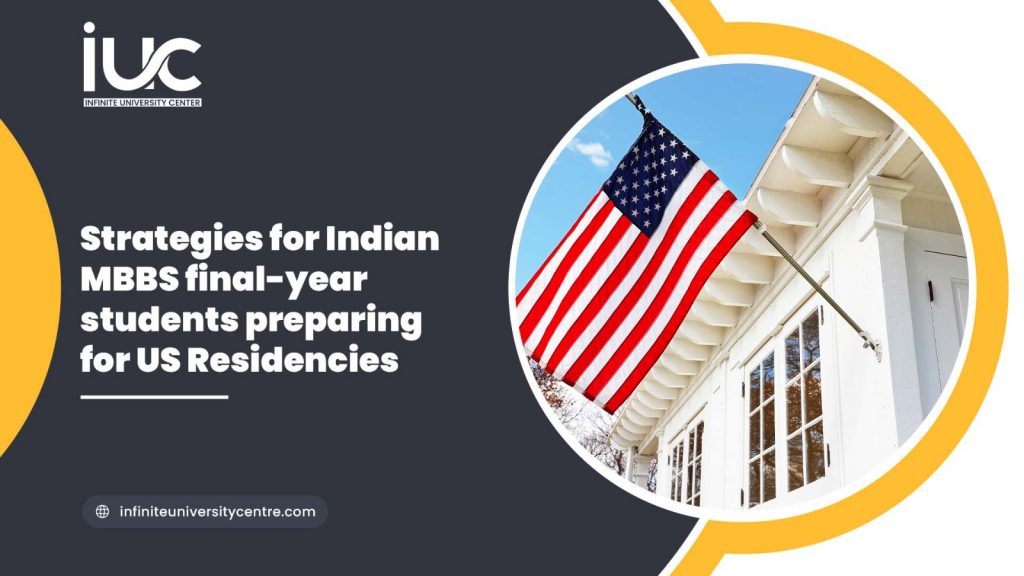Securing US residency is a valuable achievement for many final-year MBBS students, similar to a dream realized. The allure of working in the US and the prospect of obtaining permanent residency serve as the proverbial cherry on top for most medical students. Despite the seemingly intricate academic journey, starting from admission to a premier medical school to successfully completing the MBBS, the outcomes are undeniably rewarding. For those contemplating such a transition, we offer some insightful tips to facilitate a smooth navigation of this transformative process:
Preparation in advance is critical for success:
It is important to recognise that practicing as a doctor in the United States requires successful completion of the United States Medical Licencing Examination (USMLE). Therefore, it is advisable to start preparing early for the USMLE and familiarise oneself with the exam’s structure, content, and available study resources.
A plethora of study materials, both online and offline, are accessible for students aiming to excel in the exam. The choice of study material depends on individual learning styles. Notable resources include online forums, question banks, and review books. Prominent tools for USMLE preparation encompass Kaplan, Step 1, and UWorld.
In addition to these resources, consider tapping into human expertise by seeking guidance from medical professionals, faculty members, and professors. The National Board of Medical Examiners (NBME) proves instrumental in enhancing USMLE preparation. Engaging with them can provide invaluable insights to help you better comprehend the nuances of the exam.
Seek mentorship by establishing connections with experts:
Establishing connections with medical professionals who have successfully transitioned from an Indian medical school to become US residents is a crucial step for students. Leveraging their experiences and guidance can prove invaluable in navigating the complexities of the transition. Some academic programmes offer students opportunities for observation and external internships, enhancing their exposure to the US medical system.
Furthermore, certain educational institutions provide avenues for students to participate in student-led cultural organisations, encouraging a rich and diverse learning environment. Participation in medical interest groups, such as the American Medical Student Association (AMSA), opens doors to networking opportunities. Through AMSA and similar groups, students can engage in discussions spanning various specialties, including emergency medicine, internal medicine, radiology, and more.
Create a compelling resume and application:
A compelling application or curriculum vitae (CV) can serve as a decisive factor in your success. Your CV should showcase your notable achievements, emphasising the depth of your experience in clinical research, research endeavours, practical training, and voluntary contributions to medical camps.
Clinical Rotation:
Medical schools organise clinical rotations, allowing students to tailor their training to align with their career preferences. Participating in clinical rotations proves immensely beneficial, providing students with valuable exposure to their desired fields and enhancing the overall content of their CVs. These hands-on experiences contribute significantly to the practical learning journey of aspiring medical professionals.
National Resident Matching Programme (NRMP) Registration:
Securing US residency depends significantly on early registration with the National Resident Matching Programme (NRMP). Registering early not only provides students with a sense of certainty but also facilitates proactive planning for their journey. The NRMP employs a mathematical algorithm to match students with their preferred residency options, underscoring the importance of timely and strategic registration.
Prepare for the interview:
Interviews are important in the selection process for specific positions within a hospital. Thorough preparation for these interviews is essential for students. Extensively practicing responses to common questions is crucial to presenting oneself effectively during the interview.

